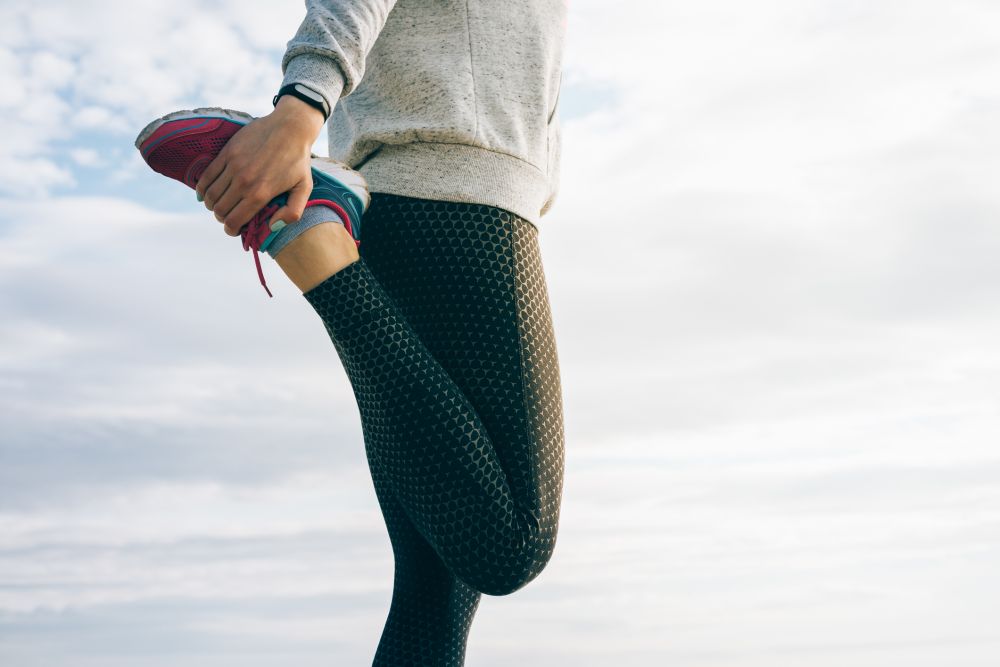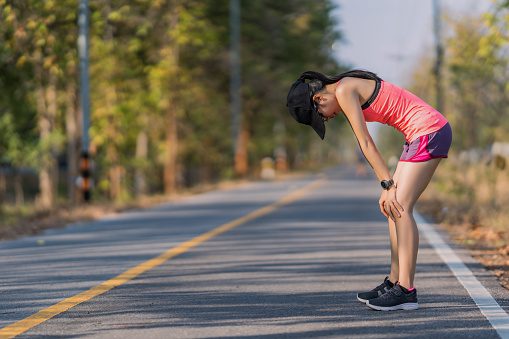Sore legs? Here are three ways to speed up your recovery
Are the stairs your worst enemy right now? Speed up your post-race recovery with these tips

If you are one of the 20,000 runners who completed the TCS Toronto Waterfront Marathon or half-marathon over the weekend, it’s likely stairs are still your worst enemy, and you’re feeling the effects of your half-marathon or marathon.

We are sorry to be the bearer of bad news, but there is no formula, recovery cream or pill to help you instantly recover from your race. Here are three ways to speed things up so you can get back to your running self in no time.
Keep fuelling
Refuelling after a big race is vital, and it’s important to make sure you are getting the right nutrients to help your sore muscles recover. It’s likely, your body running on empty since you expended all of your energy to cross that finish line.
The recovery period starts the moment you cross the finish line and it is essential to immediately provide your body with protein to repair damaged muscle tissue and build new tissue. In the three or four days after your race, you should ensure every meal contains some protein.

Carbohydrates are also the body’s main fuel source. This fuel in the form of glycogen has limited storage in our body, so can be used up quickly. You must replenish glycogen stores post-running to aid with recovery.
A juicy hamburger is the perfect celebratory food post-race, as it’s high in protein and rich in carbohydrates. Don’t forget to make sure you are also rehydrating with water and electrolytes. According to the Boston Athletic Association study done at the 2016 Boston Marathon, the average marathoner will lose three pounds in water weight during a marathon. The rule of thumb is for each pound you lose through fluids, you need 1.5 litres of water to rehydrate.
Low-impact exercise
If you have some of the post-marathon blues and are missing getting a workout in, there are still ways you can work out to enhance your recovery. Cycling is an excellent method of cross-training, plus, unlike running, it is low-impact. Low-impact exercise will allow you to stay active without inducing or aggravating your muscle tissue while facilitating recovery.
Other low-impact activities such as swimming, elliptical, or even rollerblading are also great low-impact options.
Sleep and rest
It isn’t a secret that sleep is the most valuable method of recovery for all humans. You may be tempted to spend the entire afternoon looking at your marathon splits on Strava or sharing photos from your race on Instagram and Facebook, but spending too much time on your devices when your body is tired can affect your sleep.
It’s essential to make sure you are letting your body rest in the days after your race. Experts suggest getting at least seven to nine hours of sleep to help your muscles recover.

Although you may be inspired by your race or tempted to test the body on a run, not taking enough time to completely recover after a marathon can lead to injury or overtraining, which can harm your future training plans.
Experts suggest taking a minimum of two to three weeks for a full physical and mental recovery from the strain of running a marathon. But the truth is that there is no exact formula to follow for recovery after a marathon. No matter what your plan is, you should always listen to your body and make sure you’re fully recovered before you resume your race training routine.

